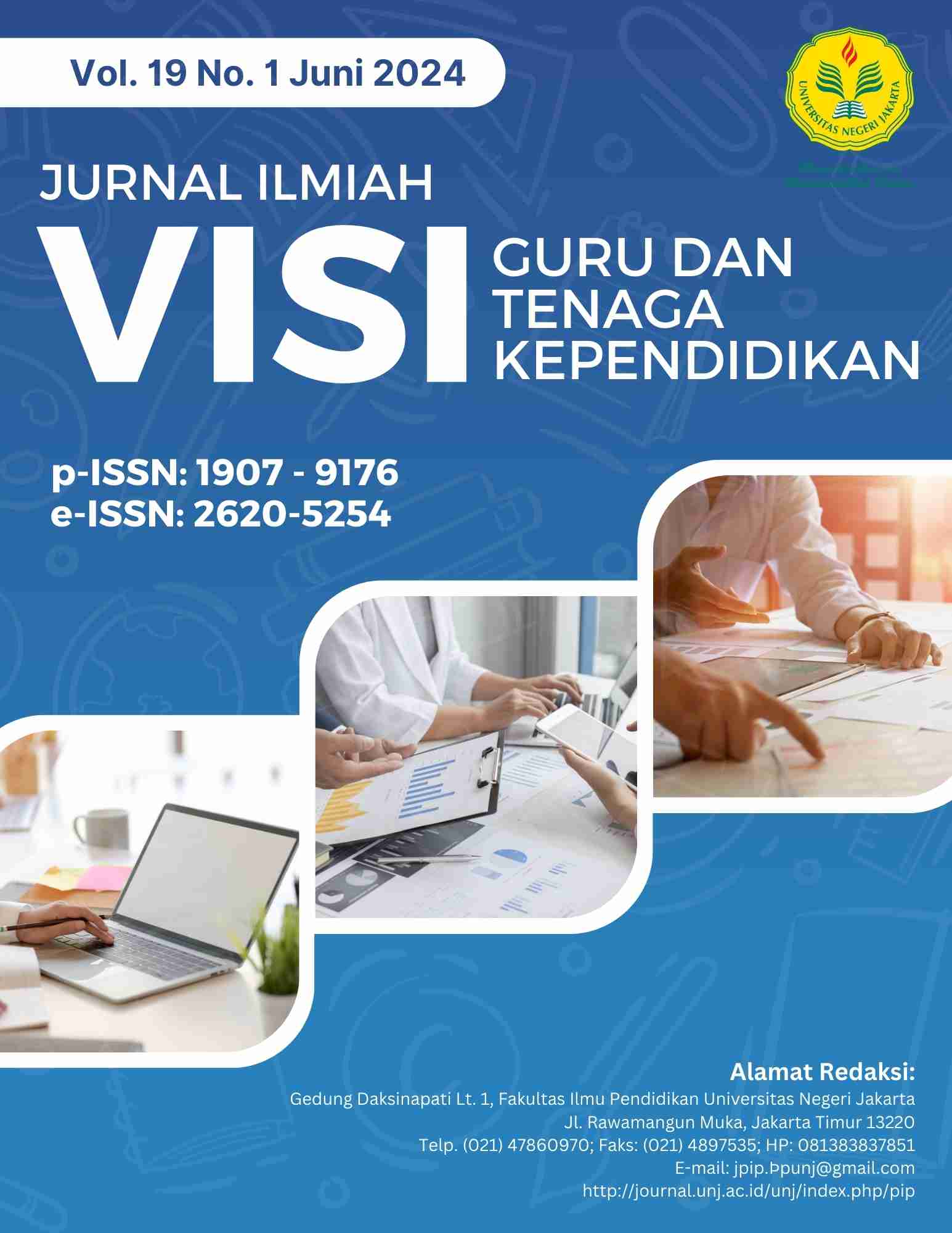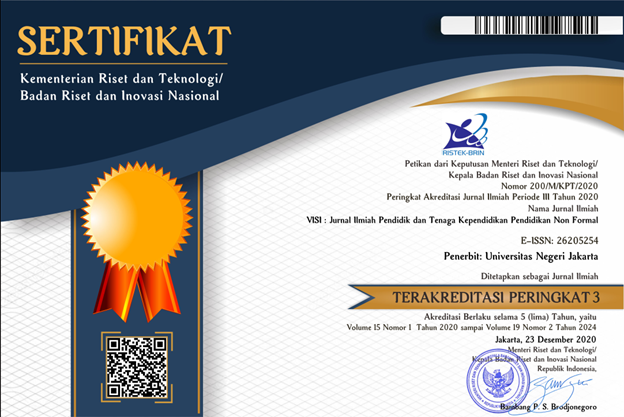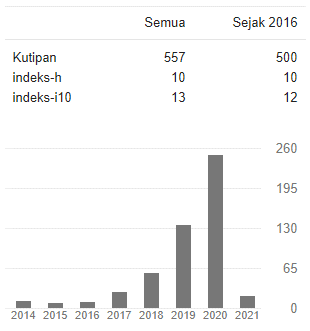The Influence of Entrepreneurship Education on the Competence of Start-Up Ventures in Empowering Nascent Makeup Artists
DOI:
https://doi.org/10.21009/JIV.1901.9Keywords:
Entrepreneurship Education, Empowerment, Start-Up CompetenceAbstract
This research aims to analyze the influence of entrepreneurship education on startup business competencies through the empowerment of prospective makeup artists. The study employs a quantitative approach with structural equation model analysis techniques using the AMOS application. The population of this study comprises alumni of the Entrepreneurial Skills Education Program (PKW) from Training and Course Institutes (LKP) between 2016 and 2018 in West Java. The sampling technique used is random sampling. Data were obtained through a questionnaire completed by 136 respondents. The results of the study indicate that entrepreneurship education does not have a significant effect on startup business competencies through the empowerment of prospective makeup artists. However, entrepreneurship education significantly influences two variables: startup business competencies (48.6%) and the empowerment of prospective makeup artists (89.1%). The study reveals the reasons for the low achievement of the PKW Program's success based on two indicators. Indicator II states that at least 75% of graduates should be able to start a business, and Indicator III specifies that at least 30% of those who start a business should earn an income equivalent to the local minimum wage within six months. The low success rate of the PKW Program in this study is explained by the limited skills of the mentors and the lack of reflection activities during the mentoring process. This research highlights the urgent need for effective mentors when prospective bridal makeup artists design and launch their startups. Mentors play a critical role in providing business insights, market advice, and market validation. Therefore, it is necessary to improve the quality of mentors and establish qualification standards for startup business mentors.
Downloads
Published
How to Cite
Issue
Section
License
Authors who publish with this Journal agree to the following terms:
- Author retain copyright and grant the journal right of first publication with the work simultaneously licensed under a creative commons attribution licensethat allow others to share the work within an acknowledgement of the work’s authorship and initial publication of this journal.
- Authors are able to enter into separate, additional contractual arrangementfor the non-exclusive distribution of the journal’s published version of the work (e.g. acknowledgement of its initial publication in this journal).
- Authors are permitted and encouraged to post their work online(e.g. in institutional repositories or on their websites) prior to and during the submission process, as it can lead to productive exchanges, as well as earlier and greater citation of published works.
- Users/public use of this website will be licensed to CC BY-NC-SA Creative Commons Attribution-NonCommercial-ShareAlike 4.0 International License









